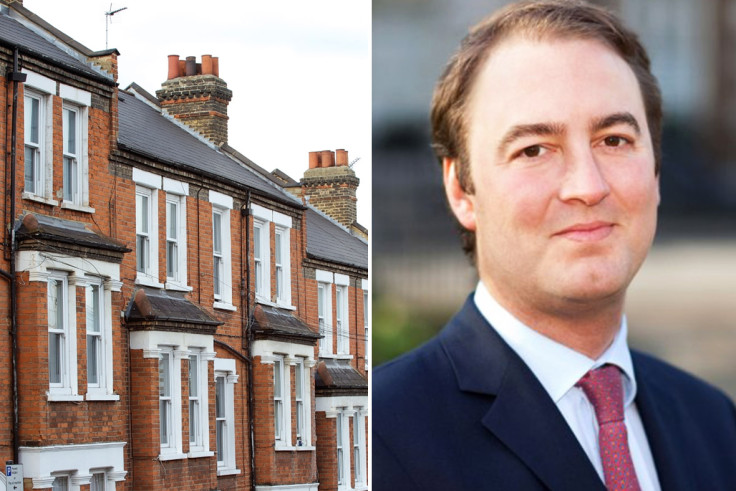Winkworth CEO Dominic Agace: Booming China will power prime central London property demand

A new generation of wealthy Chinese investors will become a big source of demand for prime central London property, said the boss of Winkworth estate agents. China is set to become the world's largest economy, overtaking the US, and is creating more dollar millionaires and billionaires every year. As it slowly opens its economy to the world, more of its new wealth is flowing out of China - and into London.
Despite China's recent economic slowdown and financial market turmoil, it is still the powerhouse motoring the global economy. The British government has made a concerted effort to improve financial ties with China, brokering new trade deals and establishing London as the renminbi trading hub for the Western world. In mid-2015, government figures show there were 112 Chinese investment projects in the UK, a figure that is expected to grow.
"The China desk is as busy as they've ever been," said Dominic Agace, chief executive of Winkworth, to IBTimes UK in an interview. "At the moment the Chinese investor is more prevalent than we've seen since we've been running a China desk, which is two years, so that's encouraging. China is something that we do think will continue this year and create new demand for prime central London... I think China is the big source of future demand in London generally. If the UK continues to cosy up and work on trade relations then it's going to make it the place to go in Europe for Chinese investors and financiers."
Property prices and transactions have dropped in prime central London, the most expensive postcode areas of the city where the market is driven by wealthy overseas buyers, historically Russian oligarchs and oil-rich Gulf royalty. A number of tax changes - including a steep increase in stamp duty for the most expensive homes at the end of 2014 and the introduction of capital gains tax for foreign property owners - has dented prime central London activity. While Agace said he thinks 2016 will be "patchy" for prime property, Winkworth's start to the year has been "better than expected".
"We expect it to outperform what we initially said, but it's early days," he claimed. "I think central London is coming to a point where it will have absorbed the stamp duty. I don't think it's quite there yet. I expect that to happen hopefully through the course of this year and the signs are it's started better than expected. Interestingly, our South Kensington office, that I was in contact with the other day, say they have had their best January start in three years. And that's in the £1m-£2m ($1.4m-$2.8m, €1.2m-€2.5m) flat market, so the lower end of prime central London.
"What you're seeing in the domestic market is steady increases. Houses now caught by stamp duty, so over £1m, we see those as fairly flat this year. Say 2% growth, 3% growth, so fairly sustainable for a benign market. Below that I think there's still more to come because they are obviously more affordable and mortgage rates remain highly affordable and are going down, so we think there is going to be 5-6% growth."
'No dramatic change for buy-to-let'
Agace also said buy-to-let investors in London will brush-off higher stamp duty after April, contrary to reports that some landlords are about to desert the sector. Chancellor George Osborne will add a 3% levy on top of normal stamp duty rates for all purchases of additional property to raise funds for policies supporting first-time buyers, such as starter homes and Help to Buy. Osborne has also scrapped a relief that allows buy-to-let investors offset their mortgage interest payments against their income tax bill.
Landlord groups say some of their members are now thinking about quitting the sector altogether. The Residential Lettings Association (RLA) surveyed over 1,100 landlords and found that 10% now plan to exit the market and 33% will consider no longer investing in buy-to-let. But Agace told IBTimes UK that buy-to-let investors in London are mostly looking for capital gains over a long period of time, not instant returns from rents, so would probably just absorb the extra stamp duty as the city's property prices continue to rise.
"London is my patch, as such, and in the London market people like our investors are largely in it for the capital gains," Agace said. "The yields haven't been great for a while. Clearly there are parts of the country where there are 9% yields, so it's very much an income play. But for a number of years now it's been capital, with a nice bit of income just to cover the costs and maybe a little bit extra. The feeling is that while capital gains continue, people are going to see it as a good investment. Alternatively they'll put their money in the stock market and would be far more nervous at the moment. It's a very popular place for investment for those in the middle class who have a bit of extra money to put aside and I don't think that's going to change. Certainly not for the stamp duty... I don't think it will be a dramatic change after April."
© Copyright IBTimes 2025. All rights reserved.






















